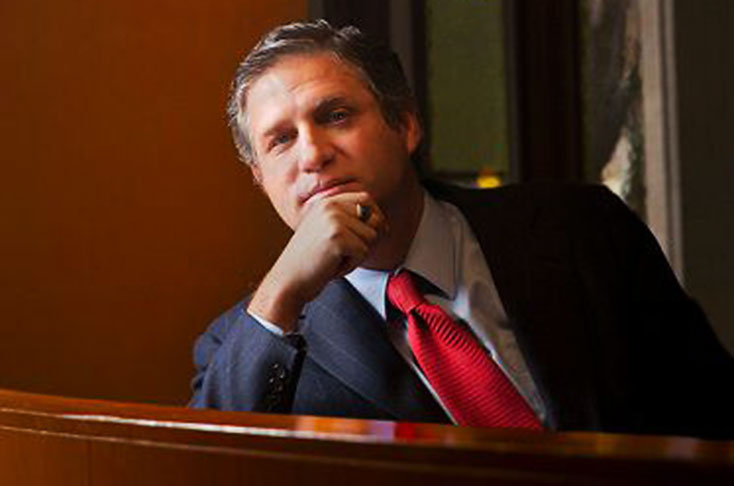Responsible Statecraft, April 15, 2021
By Arturo Lopez-Levy
Original Article: Engagement with Cuba

The United States needs a fundamentally different policy towards a post-Castro Cuba than the one applied for the last four years. Engagement is the best long-term strategy to peel Havana away from Washington’s rivals in Moscow, Beijing, Tehran, and Caracas. It is also the optimal choice to signal American goodwill to the new leaders of post-Castro Cuba and put the onus on them.
President Biden should restart normalization efforts not only because the retreat from normalization falls squarely at the feet of the Trump administration, but also because he understands — as his predecessor did not — how to conduct a great power bilateral relationship with a smaller neighbor. Estrangement from the United States was not the Cuban government’s choice, which embraced engagement long before the last embers of the Cold War had cooled.
What Happened after Obama’s opening towards Cuba?
A new and effective engagement policy requires an honest assessment of what happened between Cuba, the Cuban American community, and U.S.-Cuba relations after President Obama launched his full engagement approach in 2014. The Cuban government responded positively to the first African American president’s offers of negotiation. Of course, Cuban officials could have done more, particularly regarding reconciliation with the Cuban American community, but the two countries signed 22 important agreements. President Obama was welcomed in Havana by Raúl Castro. In his memoirs, Ben Rhodes, the architect of Obama’s rapprochement, describes how, in a relative short time, Cuba and the United States built a partnership removing many obstacles to a comprehensive interaction between the two societies.
In 2016, President Obama visited Cuba with a focus on transcending the traumas of history and a policy of sanctions repudiated by the overwhelming majority of the international community. The visit was welcomed by almost every segment of Cuban civil society. During this visit, the widespread hope about a new era rose above the resentment expressed toward President Obama by the most radical elements of the Cuban Communist Party. The Cuban Catholic Church, the main protestant denominations, and the Jewish Community welcomed an approach that improved their chances for close relations with their brothers and sisters in faith in the United States. At the same time, Cuba’s emerging private sectors received tangible benefits and profits from the inflow of American visitors.
Unsurprisingly, Trump and his ally, Senator Marco Rubio (R-Fla.), cluelessly deviated from Secretary Henry Kissinger’s golden rule for negotiation with Cuba: “Behave chivalrously; do it like a big boy, not like a shyster.” Most of the new sanctions against Cuba were implemented amid the 2020 electoral race. Distrust in Cuba about Obama’s rapprochement as a mere change of imperial tactics, aired by the most radical Cuban left, was confirmed by Secretary of State Pompeo’s last minute gratuitous return of Cuba to the State Department list of state sponsors of terror. This damage has made engagement considerably more difficult and in need of some dramatic gesture in line with the dignity of a democratic great power.
Trump didn’t achieve anything in Havana, but his supporters’ disinformation campaign presenting President Obama as an appeaser touched some nerves within the Cuban American community. By stigmatizing any supporter of Obama-Biden’s engagement as a Castro sympathizer, Trump and Rubio rang the bells of McCarthyism and conspiracy theories within the Latino community. The Democratic Party was portrayed as a communist beachhead.
By avoiding the discussion about the merits of Obama’s engagement policies, Florida Democrats surrendered a significant political space to Trump’s narrative. Trump succeeded without easing any migration restriction for Cubans, Venezuelans, or Nicaraguans. Using his stay in Mexico anti-immigration policy, Trump kept thousands of Cuban refugees from entering the United States, while increasing the number of deportations to the same archipelago Senator Rubio compared to Hitler’s Germany in senseless analogies.
A win-win engagement
There is no rationale to argue in favor of half-measure engagement if the decision is to engage. U.S. sanctions against Cuba are not a human rights policy but a violation of the very human rights principles they purport to support. Biden’s policy towards Cuba must eliminate all the counterproductive sanctions contrary to international law and must attempt to implement full normalization of relations with Cuba predicated on Obama’s Presidential Policy Directive of October 2016.
Adopting a full package of dialogue and rapprochement will multiply the impact of engagement measures in Cuba. For example, it makes no sense to ease travel to Cuba while preventing U.S. airlines from traveling to other cities but Havana. Moreover, given the notoriously electoral nature of the Trump administration’s hostility towards Cuba, it makes no sense to treat Trump’s actions as standard procedure while trying to change U.S. policies which have applied tightened sanctions for 25-years under the Helms-Burton Act’s imperial image.
In public diplomacy, a drastic cut from Trump’s policies will be better for American interests. U.S. diplomats will be in a better negotiating position if their marching orders are seen by Cubans as reflecting a full commitment to engagement. This perception will allow issue-linkage strategies when dealing with the Cuban government. It will also encourage the Cuban government on the path of reforms that are absolutely needed to overcome the economic consequences of the COVID-19 pandemic. A summer immigration crisis with thousands of Cubans trying to reach the American or Mexican shores in road to the U.S. southern border is not improbable. Is this in the interest of the Biden administration?
A Biden’s commitment to normalcy in U.S.-Cuba relations will expose all Cuban government’s self-limitations versus the U.S. government’s propensity to engage and respect international norms. A full engagement disposition will attract to the U.S. side the goodwill of Western allies like Canada, the European Union, and most of Latin America. Such an approach might even have spillovers in Cuba’s attitude towards a negotiated solution to the Venezuelan conundrum. After four years of a policy of America First, translated as America Only, it will be an act of productive humility to show some deference to the U.S. allies.
From a political perspective, President Biden should be reminded about his advice to Prime Minister Netanyahu in 2011 that “there’s no sense dying on a small cross.” The opposition by radical exiles will be the same if the president attempts a partial or a full normalization. Concurrently, the political benefits of engagement would multiply the sooner and the more comprehensive the rapprochement policy is adopted.
Of course, normalization is a tango for two. If the Cuban government wants to reestablish lasting relations effectively with the United States, it must behave as a country, not as a revolutionary cause. It is in Cuba’s national interest to reduce as much as possible the relevance of the Cuban right-wing radicals in the swing state of Florida. This will be possible by reducing the bases for their grievances and opening economic opportunities for the Cuban diaspora. A mixed economy with rule of law and a more committed Cuban human rights policy is in the interests of Cuban society, regardless of what the United States does or says.
Engaging Cuba is not a favor to the Cuban Communist Party. By opening trade and travel to the island and opening American doors to as many Cubans as possible, the United States will influence how the Cuban people view their society and its place in the world. Developing business ties between the two countries, allowing Cubans to visit, work, and study in the United States, and easing visa restrictions as the Obama administration did, will increase the information flows between Cuba and the outside world.
U.S. interests in Cuba are advancing a gradual, peaceful, and well-ordered transition to a market economy and eventually a pluralistic democracy. Ideology aside, such an outcome is also optimal for the majority of Cubans. If there is a marketization of the Cuban economy, more openness and contacts between the Cuban people and its diasporas, and close ties with the United States, it will most likely happen. Not overnight, but it will happen faster and with better results than 60 years of sanctions and siege.

Arturo Lopez-Levy

